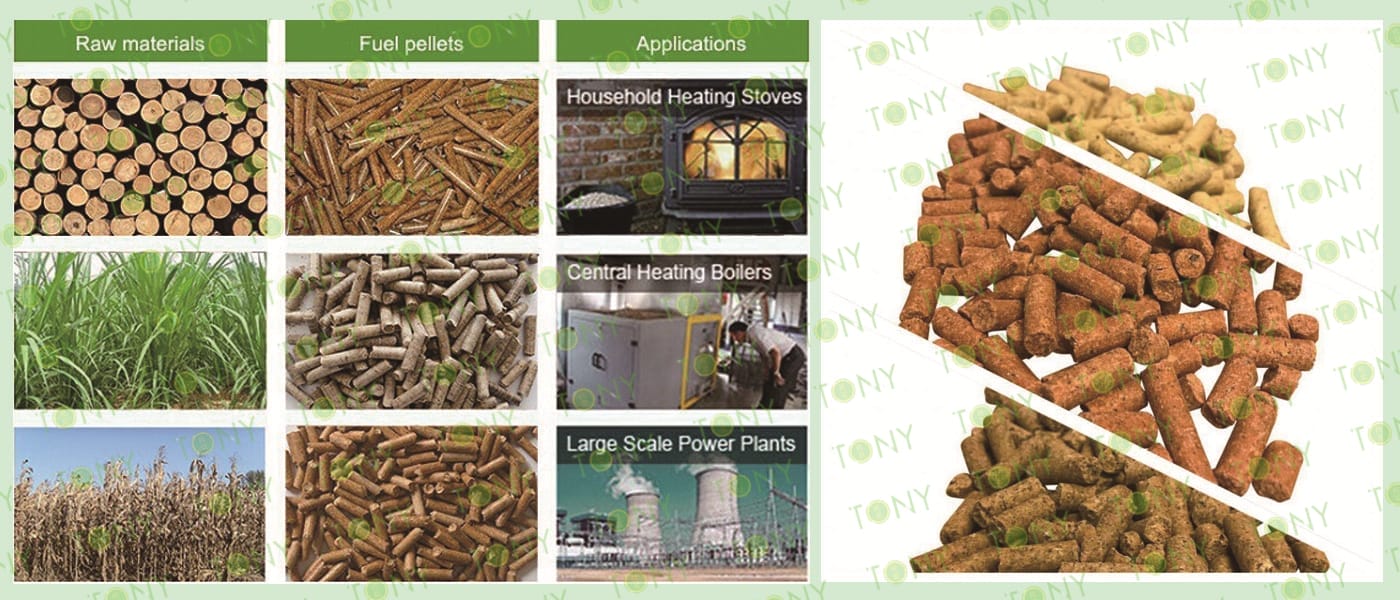Amid the global shift toward cleaner, low-carbon energy, wood pellet machines, as core equipment for the industrialization of biomass energy, are injecting strong momentum into this transition with their unique technological advantages and application value. They not only transform previously dispersed and inefficient forestry waste into standardized clean energy, but also demonstrate irreplaceable roles in industrial chain synergy, emission and carbon reduction, and energy security.
1. Breaking the bottleneck in forestry waste utilization and activating a "green energy reservoir"
Wood chips, branches, bark, and other waste generated by forestry production have long faced the dilemma of difficult treatment and fragmented utilization. Open-air burning exacerbates air pollution, while indiscriminate storage occupies land and fosters pollution. Through an integrated "crushing - drying - extrusion" process, the wood pellet machine transforms these loose waste materials into high-density (approximately 1.1-1.3 tons/cubic meter) and stable calorific value (approximately 4200-4800 kcal/kg) wood pellets. This achieves three key breakthroughs:
Higher energy density: The pellets are only 1/5-1/10 the volume of the raw material, making them easier to store and transport over long distances, resolving the pain points of high collection costs and low transportation efficiency for biomass raw materials.
Standardized application: The pellets are uniformly sized (typically 6-8mm in diameter and 20-30mm in length), making them directly compatible with industrial boilers, household fireplaces, biomass power generation equipment, and other applications, replacing fossil fuels like coal and natural gas.
Maximized utilization: The conversion rate for forestry waste can reach over 90%, and it can even process scraps from wood processing, turning "waste" into true "energy."

2. Promote energy mix diversification and strengthen low-carbon resilience.
During the energy transition, renewable energy sources like wind and solar are limited by their intermittent nature. Biomass energy, on the other hand, offers storability and controllability. Wood pellet machines provide industrial support for these advantages:
Filling the energy gap: Wood pellets can serve as a stable fuel for industrial boilers (such as heating in the food processing and textile industries) and can also be used for distributed power generation, supplementing grid loads during peak periods and enhancing energy system flexibility.
A low-cost alternative to fossil fuels: Compared to natural gas and coal, wood pellets have lower raw material costs (especially in areas with abundant forest resources), and combustion equipment modification is relatively easy, lowering the barrier to entry for businesses.
The value of wood pellet machines lies not only in converting wood chips into pellets, but also in transforming their environmental potential into a driving force for transformation, making the green transformation of the energy mix more efficient and sustainable.





















